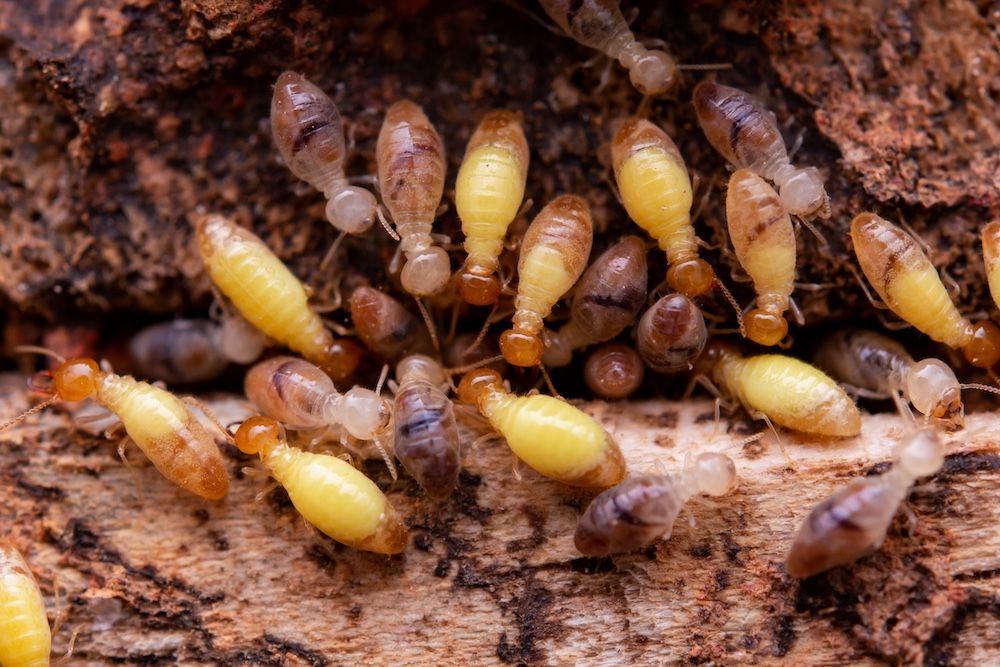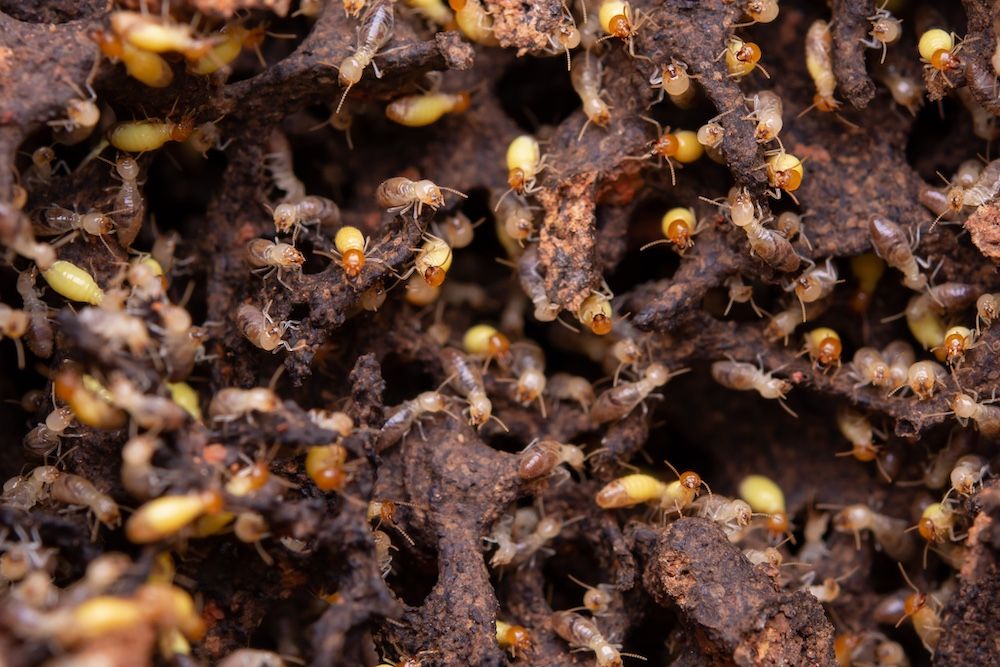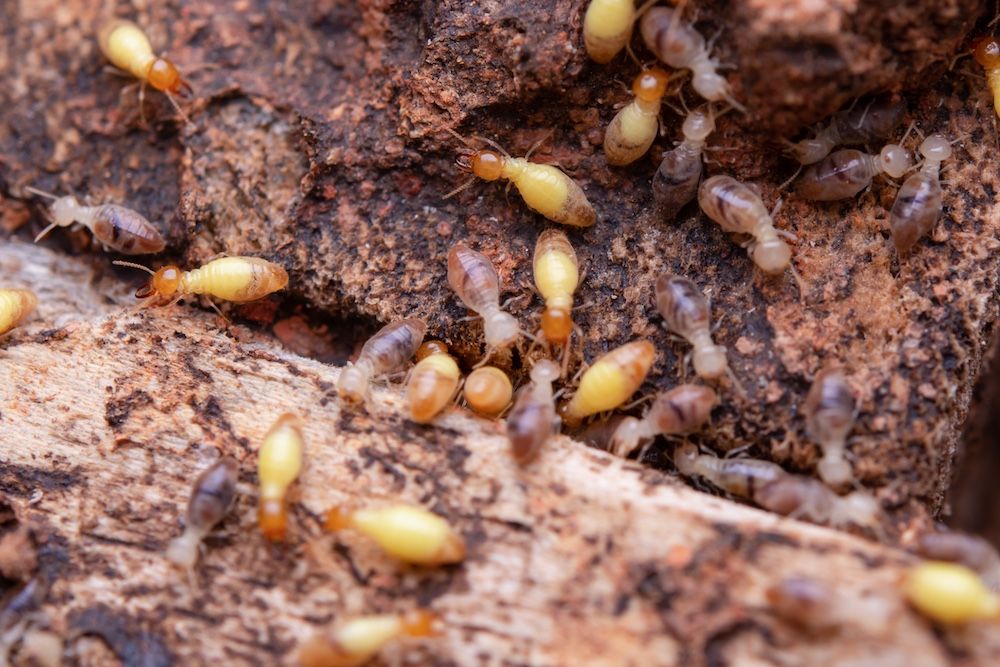Termites are silent destroyers, causing billions of dollars in property damage each year. These voracious pests can wreak havoc on homes and buildings, compromising their structural integrity and leading to costly repairs. However, with the right approach to termite treatment, homeowners can protect their properties and prevent termite infestations from causing further damage. In this comprehensive guide, we’ll explore various methods for treating termites, with a special focus on the expertise of Advanced Pest Control Of Alabama, LLC.

Termites: Conquering Termite Infestations with Effective Treatments

Understanding Termites:
Termites are social insects that feed on cellulose-based materials, such as wood and paper. They live in colonies underground or within wooden structures, making them difficult to detect until significant damage has already occurred. There are several species of termites, but the most common types encountered in the United States are subterranean termites, dry wood termites, and damp wood termites.
Signs of a Termite Infestation:
Detecting a termite infestation early is crucial for minimizing damage to your property. Some common signs of a termite infestation include:
• Mud tubes: Subterranean termites construct mud tubes along walls, foundations, and other surfaces to provide moisture and protection as they travel between their nest and food sources.
• Discarded wings: Swarmers, or reproductive termites, shed their wings after mating. Finding discarded termite wings near windowsills, doors, or light fixtures may indicate the presence of a termite colony nearby.
• Hollow-sounding wood: Termites tunnel through wood from the inside out, leaving behind hollowed-out galleries. Tap on wooden surfaces and listen for a hollow sound, which could indicate termite activity.
• Frass: Drywood termites push out fecal pellets, known as frass, from small openings in infested wood. Accumulations of frass may indicate an active termite infestation.
Treating Termite Infestations:
Effective termite treatment typically involves a combination of prevention, inspection, and intervention strategies. Here are some common methods used to treat termite infestations:
• Soil Treatment: Soil treatment involves applying liquid termiticides to the soil around the perimeter of a structure to create a chemical barrier against termites. This method is particularly effective for controlling subterranean termites, which nest underground and forage for food
aboveground.
• Wood Treatment: Wood treatment involves applying liquid termiticides or borate-based products directly to wooden structures or materials to deter termites from feeding. This method is effective for both preventing and treating termite infestations in susceptible areas of a building.
• Baiting Systems: Baiting systems use bait stations installed in the soil around a structure to attract termites. Once termites feed on the bait, they carry it back to the colony, where it spreads and eliminates the entire population. Baiting systems are effective for controlling subterranean termites and can provide long-term protection against future infestations.
• Fumigation: Fumigation involves enclosing a structure and releasing a fumigant gas to penetrate and eliminate termite colonies within the building. This method is highly effective for treating dry wood termite infestations but requires professional expertise and specialized equipment to ensure safety and efficacy.

Advanced Pest Control Of Alabama, LLC: Your Partner in Termite Treatment
When it comes to treating termite infestations, enlisting the help of a professional pest control company like Advanced Pest Control Of Alabama, LLC is essential. Their experienced technicians have the knowledge, skills, and resources to accurately identify termite infestations and implement effective treatment strategies tailored to your specific needs. Advanced Pest Control Of Alabama, LLC offers a range of termite treatment options, including soil treatments, wood treatments, baiting systems, and fumigation. Their comprehensive approach to termite control ensures thorough eradication of termite colonies and long-lasting protection for your property. In addition to treatment, Advanced Pest Control Of Alabama, LLC also provides ongoing monitoring and maintenance to prevent future termite infestations. By partnering with Advanced Pest Control Of Alabama, LLC, homeowners can rest assured that their properties are protected against the threat of termites.
Termites pose a significant threat to homes and buildings, but with the right treatment approach, infestations can be effectively controlled and prevented.
Whether you’re dealing with subterranean termites, dry wood termites, or damp wood termites, Advanced Pest Control Of Alabama, LLC has the expertise and resources to address your termite concerns and protect your property. Don’t let termites destroy your investment – take proactive steps to treat and prevent termite infestations with the help of Advanced Pest Control Of Alabama, LLC.
Frequently Asked Questions (FAQs) about Termite Treatment:
Q: How do I know if I have a termite infestation?
A: Look out for signs such as mud tubes along walls or foundations, discarded termite wings, hollow-sounding wood, and piles of termite droppings (frass). If you suspect a termite infestation, it's best to contact a professional pest control company like Advanced Pest Control Of Alabama, LLC for an inspection.
Q: What types of termites do I need to be concerned about?
A: The most common types are encountered in the United States are subterranean termites, dry wood termites, and damp wood termites. Each species has its own behavior and habitat preferences, so it's important to identify the type of termite infestation to determine the most effective treatment approach.
Q: How long does termite treatment take to eliminate the infestation?
A: The duration of termite treatment depends on various factors, including the size of the infestation, the treatment method used, and the type of termites involved. Some treatments may require multiple visits over several weeks or months to ensure complete eradication of the termite colony.
Q: Is termite treatment safe for my family and pets?
A: Professional pest control companies like Advanced Pest Control Of Alabama, LLC use EPA-approved products and follow strict safety protocols to ensure the safety of your family and pets during termite treatment. It's important to follow any instructions provided by the pest control technician and take necessary precautions during and after treatment.
Q: How can I prevent future termite infestations?
A: To prevent future termite infestations, it’s essential to address conducive conditions around your home, such as moisture issues, wood-to-soil contact, and structural vulnerabilities. Regular inspections, routine maintenance, and implementing preventive measures recommended by a professional pest control company can help minimize the risk of termite infestations.
Q: What should I do if I suspect a termite infestation?
A: If you suspect a termite infestation, don’t delay in contacting a professional pest control company like Advanced Pest Control Of Alabama, LLC for an inspection. Early detection and treatment are key to minimizing damage and preventing the spread of termites throughout your property.
